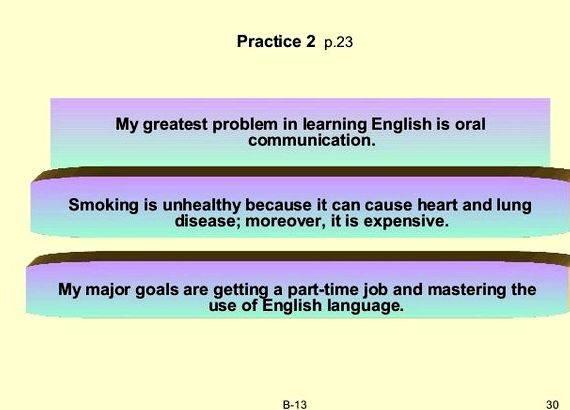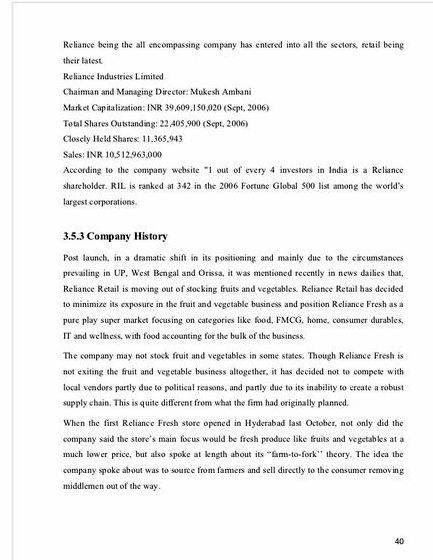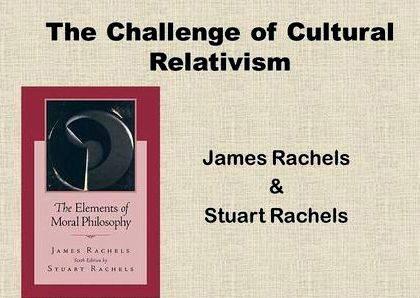The following essay clarifies the distinction between ethical and cultural relativism and explains James Rachels’ challenge to cultural relativism. His challenge consists in critiquing the Cultural Differences Argument (discussed below), giving reasons for thinking that there is an objective standard of morality, and then attempting to defend a particular objective moral standard.
After explaining Rachels’ views in more detail below, this essay then critiques his challenge, arguing that it only succeeds in showing cultural relativism to be false if we assume that God exists. But since Rachels’ challenge is in fact successful, it follows that God exists. The upshot of this is that the Christian worldview, with its particular objective moral standard, is more plausible than both cultural relativism and atheism.
Ethical Relativism vs Cultural Relativism
Ethical relativism is a doctrine that encompasses many different theses, including the empirical thesis that there is disagreement about morality, the metaethical thesis that morality is not absolute, and the normative thesis of how we ought to act towards those whom we disagree with on moral issues (Gowans). Relativists may hold all of these theses together, but many hold only to some of them.
One version of ethical relativism is cultural relativism. Cultural relativism, according to the Stanford Encyclopedia of Philosophy. “is the thesis that a person’s culture strongly influences her modes of perception and thought” (Swoyer). Many cultural relativists add to this the thesis that there is no objective standard of morality. Rather, morality is relative to the particular culture in which one resides.
James Rachels, a prominent ethicist, has written against this kind of cultural relativism in his work The Elements of Moral Philosophy. a section of which is found in the compilation The Moral Life by Louis Pojman and Lewis Vaughn.
An Overview of Rachels’ Challenge to Cultural Relativism
While Rachels agrees with the relativist that we should keep an open mind when making ethical judgments and not be too quick to ascribe all of our preferences to an absolute standard (Rachels, 172), he differs from ethical and cultural relativism by holding that there exists an objective standard of morality. By this he means that there is a culturally neutral standard of right and wrong by which we can judge between two societies. He gives a two-part defense of his position: first, he shows that the main argument in favor of cultural relativism is unsound; second, he offers three arguments for thinking that there is an objective standard of morality.
Answering the Relativist’s Argument
To begin his analysis of the plausibility of cultural relativism, Rachels considers what he calls the “Cultural Differences Argument” (161). This is a prominent argument that cultural relativists use or imply when trying to justify their position. He summarizes the argument as follows:
- Different cultures have different moral codes.
- Therefore, there is no objective “truth” in morality. Right and wrong are only matters of opinion, and opinions vary from culture to culture (162).

This is the fundamental form of the argument, but Rachels points out that it often is presented with different moral issues substituted in for the premise and conclusion. So, for example, the relativist may point out that one culture believes that cannibalism is right, while another believes that it is wrong, and from this argue that cannibalism is neither right nor wrong, but merely a matter of opinion (162). Nevertheless, while this argument has many variations, it retains the same fundamental form.
So is this a good argument for thinking that Cultural Relativism is true? Rachels does not think so. He is quick to point out that the cultural differences argument has an invalid form – even if the premise were true, the conclusion could still be false. Rachels explains why: The premise concerns what people believe – in some societies, people believe one thing; in other societies, people believe differently. The conclusion, however, concerns what really is the case. The trouble is that this sort of conclusion does not follow logically from this sort of premise (162).
In other words, the premise deals with moral epistemology while the conclusion deals with moral ontology. The premise makes a claim about people’s beliefs about morality while the conclusion makes a claim about the nature of morality itself. And this, says Rachels, makes for a fallacious argument.
To illustrate his point, he uses the analogy of people thinking the earth is flat, despite the earth being roughly spherical in reality (163). In some societies, people did and still do think that the earth is roughly spherical. But surely it does not follow from this that there is no objective truth in geography; different societies have different views about the shape of the earth, but that does not imply that neither view is right. What follows, rather, is that people who think that the earth is flat are wrong. We all recognize that the flat-earth view is false, even though some people mistakenly think that it is true.
But if the mere fact of disagreement does not prove that there is no objective truth in geography, neither does it prove that there is no objective truth in morality. Given the failure of the cultural differences argument, then, we are left with no good reason to think that cultural relativism is true.
Three Arguments against Cultural Relativism
But Rachels makes clear that this fact alone does give us good reason to think that cultural relativism is false. For this, we need to have some positive reason to believe the negation of cultural relativism, that there is an objective moral standard. Rachels proceeds to give three reasons in the form of modus tollens arguments that show that cultural relativism is implausible. He gives what he thinks are logical consequences of cultural relativism, argues that these consequences are implausible, and thereby concludes that cultural relativism must not be true.
First. Rachels points out that cultural relativism, if true, would entail the following proposition: “We could no longer say that the customs of other societies are morally inferior to our own” (163). This is of course one of the main motivations for relativist views. Perhaps such a proposition is plausible, says Rachels, when the issue at hand is something with comparatively little significance like funeral practices, but it is problematic when the issue is a bit weightier. For instance, if we took cultural relativism seriously, we could not criticize Nazi Germany or the Antebellum South for their moral atrocities.
But obviously, says Rachels, the practices that these societies carried out were wrong and would have been wrong regardless of the context in which they occurred. Thus, since it seems right to criticize other societies in at least some situations, cultural relativism must be false.
The second consequence of cultural relativism, according to Rachels, would be that “we could decide whether actions are right or wrong just by consulting the standards of our society” (164). Since, for the relativist, morality is relative to the standards of the society in which we live, whatever our society says is right and wrong for us is right and wrong for us, and there is nothing we can do about it. If our society says apartheid is right, then it is right whether we agree with it or not.
But surely, says Rachels, we can see that our society is not perfect; there are ways for it to be improved. But if that is the case, then cultural relativism cannot be true.
This idea is closely related to the final consequence that Rachels points out. He argues that if cultural relativism is true, then “the idea of moral progress is called into doubt” (164). We generally think that some social changes can be for the better while others are for the worse. But given cultural relativism, there is no objective standard by which we may judge between societies, even when the other society is an older version of our own.
Rachels gives the examples of our own Western culture coming to increase rights for women and black persons. Without an objective moral standard, these can only be seen as neutral changes or as clarifications of the already existing cultural standard. According to Rachels, however, it is more plausible to regard these changes as genuine progressions in our society progressions that get us closer to the objectively true standard of morality which serves to show that cultural relativism should not be affirmed.
Rachels’ Objective Moral Standard
Thus far Rachels has argued against cultural relativism by refuting the argument in favor of it and offering three arguments for thinking that there exists an objective moral standard. Rather than stopping here, however, he goes on to posit what he thinks is the culturally neutral standard we can appeal to when judging between cultures:
This is a standard that might reasonably be used in thinking about any social practice whatever: We may ask whether the practice promotes or hinders the welfare of the people whose lives are affected by it (170).
In other words, the moral worth of a practice is contingent upon how it contributes to the society in which it is practiced. If an act promotes human flourishing, it is morally good, whereas an act that hinders human flourishing is morally evil. It is an objective fact whether an act promotes or hinders human flourishing, so this may be used as an culturally neutral standard.
Rachels applies this standard to different social practices to illustrate its effectiveness. For example, lying hinders effective communication, which is necessary for a well-functioning society. It can therefore be determined that a “presumption in favor of truthfulness” is and should be in place in any society (168). Furthermore, a law against murder must exist in any society in order to have trust and safety.
Rachels therefore notes that “there are some moral rules that all societies must have in common, because those rules are necessary for society to exist” (168). These rules undeniably promote human flourishing, and so, says Rachels, they are objectively good moral rules.
An Evaluation of Rachels’ Challenge
In his critique of cultural relativism, Rachels followed the common route taken by moral objectivists by demonstrating the invalidity of the relativist’s reasoning. He is right to point out that disagreement over moral issues does not prove that there is no truth in the matter. Moreover, his proposed consequences of cultural relativism do seem to follow from the theory. Because we recognize these consequences as implausible, we ought not to accept the theory that leads to them.
After this, however, he attempts to provide a foundation for objective morality in the intrinsic value of human beings. Whatever promotes human flourishing is good, while anything that hinders it is immoral. This seems to be an effective line of reasoning to follow when deciding whether a particular act is morally good or not, and we all do seem to have the common intuition that human flourishing is a morally praiseworthy end.
But it seems that this standard needs to be qualified within a particular worldview in order for it to work. I am going to argue that theism has an adequate justification for affirming the intrinsic value of human beings, whereas atheism does not. Therefore, the former must be held in order to justifiably hold to Rachels’ objective standard of morality.
Rachels’ Standard Requires the Existence of God
The notion that human beings are ends in themselves, or intrinsically valuable, fits in well with classical theism. According to classical theism, human persons are created by a transcendent and personal God. Moreover, they are made in his image, which infuses them with an objective value that cannot be taken away. Therefore, humans ought to be treated in a way that is consistent with the value they have; they should be treated as ends in themselves.
Thus, it may be affirmed that acts promoting human flourishing are good, while acts that hinder it are not. The theist may additionally suppose that our moral obligations are grounded in God’s commandments, which reflect how human beings with intrinsic value ought to relate to each other (as well as to God). Theism, therefore, provides the necessary grounds for affirming objective moral values and duties.
On atheism, however, this sort of justification for thinking that human beings are intrinsically valuable is absent. Moreover, atheism does not seem to possess any other sort of justification that grounds the intrinsic value of humans. In the atheistic scheme of things, human beings are just highly evolved animals – accidental byproducts of nature lost somewhere on a spec of dust called planet earth, doomed to perish in the heat-death of the universe.
Why, on atheism, would human flourishing be a better standard than, say, the flourishing of ants? One may say that we are more highly evolved than ants, or that humans possess rationality whereas ants do not. But these facts do not seem to give us any more moral significance if we remain mere accidents in a purposeless universe.
Moreover, there does not seem to be any sort of justification for affirming objective moral duties if atheism is true. Why, on atheism, think that humans are obligated to do anything? Who or what lays these duties upon them? As the prominent ethicist Richard Taylor explains:
A duty is something that is owed&….But something can be owed only to some person or persons. There can be no such thing as duty in isolation…. The concept of moral obligation [is] unintelligible apart from the idea of God. The words remain but their meaning is gone (Taylor, 83, 84).
In the atheistic worldview, there is no transcendent being to ground moral duties so as to make them objective, no authoritative lawgiver to give us objective moral laws.
Rather, human beings over the eons formulate a sort of herd morality that functions well in keeping the species alive. Because of its effectiveness, nature selects it to remain present in successive generations so that it becomes the norm. But that does nothing to prove that this morality is objectively true. If we rewound the tape of evolution, a whole different norm may well have evolved, so that rape could have been “right&” in the herd morality.
Thus, given the presence of an adequate foundation for a culturally neutral, objective standard of morality on theism, but the lack thereof on atheism, affirming both atheism and an objective moral standard is inconsistent. As Rachels is himself an atheist, this represents the main flaw in Rachels’ system of ethics. Nevertheless, Rachels remains right to point out the flaws of cultural relativism and the need for an objective standard, even if he does not adequately support that standard.
Conclusion
Cultural Relativism is the view that different cultures have different, contradictory standards of morality, and that there is no objective standard by which we can judge between them. James Rachels has written against this view, arguing that the main argument for cultural relativism fails, and that there are good reasons to think that there exists an objective standard of morality.
The Cultural Differences Argument, he claims, fails because it does not follow from the fact that societies disagree about morality that there are no objective facts about morality.
He then provides three logical consequences that would follow if cultural relativism were true: first, we could not longer judge morally inferior societies; second, our society’s standards would be the unquestionably right standards for us; third, moral progress would be impossible. Because we can see that these consequences are implausible, he argues, we have grounds for supposing that cultural relativism is false.
Having established the existence of an objective standard, he offers what he thinks is the identity of that standard, namely, human flourishing: actions that promote the welfare of human beings are morally good, while actions that hinder the welfare of human beings are immoral.
In my evaluation of Rachels’ views, I agreed with his critiques of cultural relativism and his arguments for thinking that an objective standard exists, but argued that his standard cannot be consistently affirmed in the context of an atheistic worldview, which exposes an inconsistency in his system of ethics.
The final upshot, then, is not only that the Christian worldview (which posits an objective moral standard) is more plausible than cultural relativism but also that the Christian worldview is more plausible than atheism as well, since Christianity succeeds in grounding an objective moral standard whereas atheism fails.
Works Cited
Gowans, Chris, &”Moral Relativism&”, The Stanford Encyclopedia of Philosophy (Spring 2011 Edition), edited by Edward N. Zalta.
Rachels, James. &”Why Morality Is Not Relative.&” The Moral Life (4th edition), edited by Louis Pojman and Lewis Vaughn. Oxford UP, 2011. 160-73.
Swoyer, Chris, &”Relativism&”, The Stanford Encyclopedia of Philosophy (Winter 2010 Edition), edited by Edward N. Zalta.
Taylor, Richard. Ethics, Faith, and Reason. Prentice Hall, 1985.
Check out The Moral Life to learn more about relativism along with countless other interesting and important issues in the field of ethics.
What do you think about James Rachels’ challenge to cultural relativism? Be sure to leave any thoughts or questions you have in the comments section below!
Evidence for the Resurrection Part 1: A Historical Proof of Jesus̵. The resurrection of Jesus is the cornerstone of Christian belief and practice. If Jesus did not rise from the dead, validating his claim to be the Son of God (Mark 14:61-62), then.
Legal and Moral Justification – A Defense of Penal Substitution. This series of articles has considered and responded to an objection to penal substitution on the basis of contemporary human legal theory, stating that it is unjust in general – l.
Answering Two Kinds of Relativism about Religion: Modernity vs Postmod. This article clarifies the Christian view of truth and distinguishes it from two kinds of relativism about religion: modernism and postmodernism. It then argues that the Christian.






 Doctorat d etat thesis writing
Doctorat d etat thesis writing Topic thesis writing business administration course
Topic thesis writing business administration course Mixed use development thesis writing
Mixed use development thesis writing Youtube three month thesis writing
Youtube three month thesis writing Good topic for thesis writing
Good topic for thesis writing






